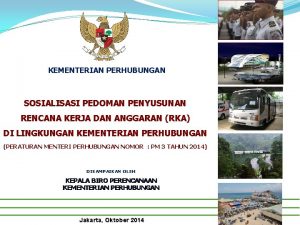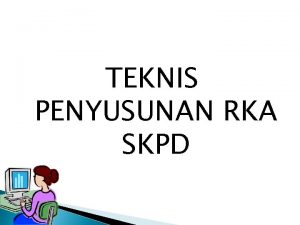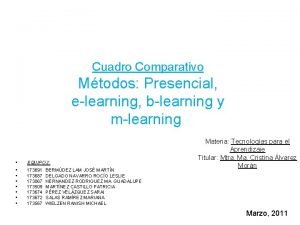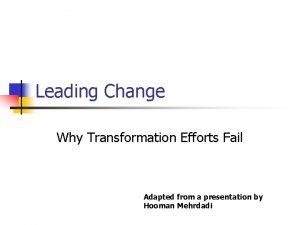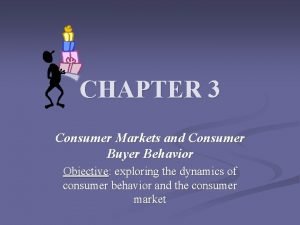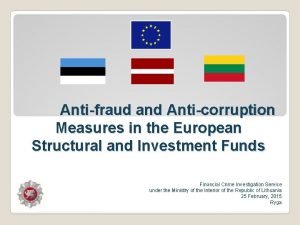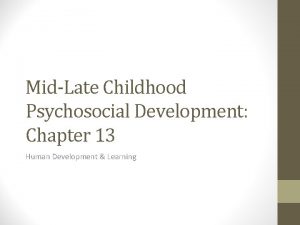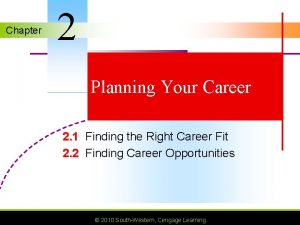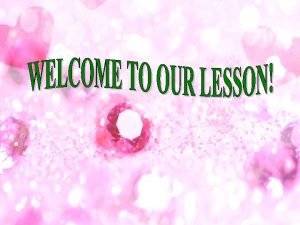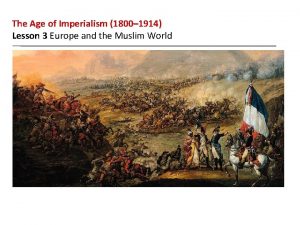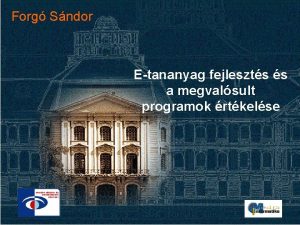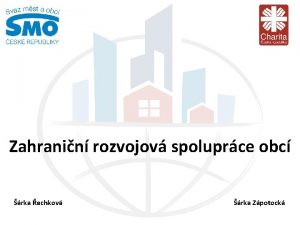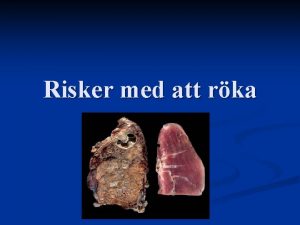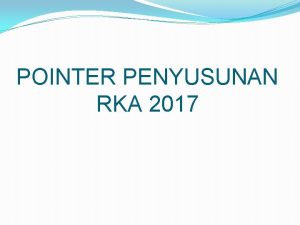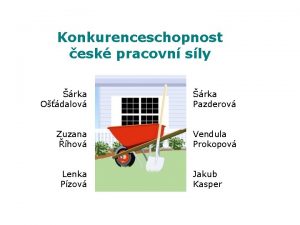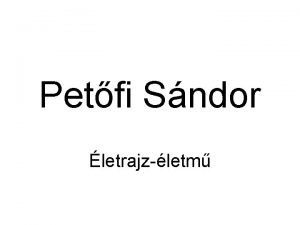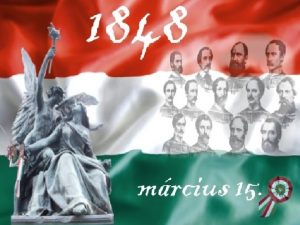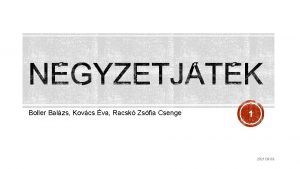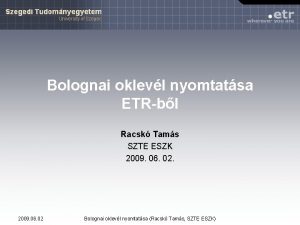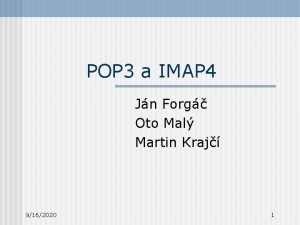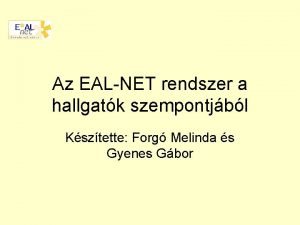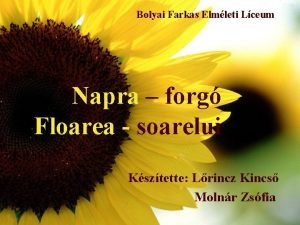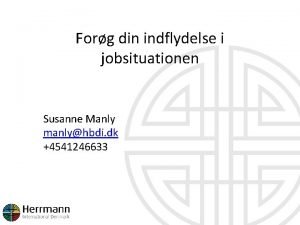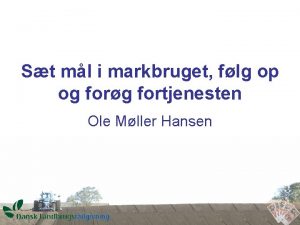Sndor Forg Rka Racsk Learning Efforts and the


















- Slides: 18

Sándor Forgó, Réka Racskó Learning Efforts and the New Media A Connectivism course experience • New Media Generation, • Mediaconvergence and diversification • theoretical and practical side, side of • Individual and • social solutions. Eszterházy Főiskola http: //www. slideshare. net/forgos Eger

Introduction Via web Internet Informatics Pedagogy Connectivism* Network research by Siemens & Downs

The outline New Media and the network-based (connectivist) learning The preceding background and scientific objectives of the empirical research effort Results & Conclusions *Connectivism: „A Learning Theory for the Digital Age” (George Siemens) 3

Little, big and social MEDIA LITTLE MEDIA (Personal, Narrow ) [f 2 f, 1: 1] W. Schramm, vs Bowma n [p 2 p & n: n] Generation BIG MEDIA - Mass Media (Press & Broadcast [1: n ] ) SOCIAL (Web 2. 0) Little. Big Social Media Free & open, mobile „without 4

The grouping of media in the post-modern era I. 1870 s -1980 s → Mass media (Newspapers, broadcast) II. 1990 s →Masses of media (Digital channels) III. 2000 s – →Me media (web. Blogs, pers. publ. ) IV. 2004 s – → We media (participatory, citizen journalism) Prosumer from the consumer Source: Richard Bailey: New-media 5

Digitalisation, local & networked media Network-based communication forms: Digitalisation, processing and communication via local media, These newly developed areas include: Web 2. 0 Network based learning i. TV Mobile learning Podcast 6

The main features of e. Learning 2. 0* 1. learner-centred 2. irregularly arranged 3. learner autonomy and spontaneous knowledge exchange 4. not hierarchical, but horizontal scheme, 5. a multi-directional multi-channelled 6. collaborative *Forgó: (ÚPSZ, 2009 Hu)

New television technologies Interactive Tele. Vision (i. TV) rich media content strong interactivity based on the combination of the personal computer and the television Learning form: interactive t-learning Farewell to prime time shows!

Mobile (cellular, handy) telephones guaranteeing virtually continual availability, anyone can make a call or be contacted, mobile telephonebased knowledge or information acquisition, or m-learning

Old vs. Convergent & Diversificated Media

Connectivism courses in Eger The Department of Instruction and Communication Technology has recognised this new dimension of higher education and in the previous semester launched a course supported by Web 2. 0 -based instructional devices.

RÉKA RACSKÓ: The preceding background and scientific objectives of the empirical research effort The course utilized the following tools: • • Blogs Social bookmarks (link sharing) Content and presentation sharing Shared documnets Wikipedia Cognitive maps, VBA The course was completed with a questionnaire -based survey.

The introduction of the assessment tool as a research objective Participants: Students in post-graduate Master programs Goal: Evaluation of their attitudes and acquired proficiency levels regarding the connectivist learning methods. The survey containing : open and closed questions, Likert scale, answer matrix N=100.

The results of the research 50% 46%; 46 45% 18%; 18 40% 35% 30% 9%; 9 25% 14 %; 14 10%; 10 20% 2%; 2 15% 10% 5% 0% 19 -22 23 -30 31 -35 36 -40 41 -50 Age of the participants 51 -60 The number of registration-based access to community pages, web department stores, and web 2. 0 services

The main conclusions and summary of the research effort, perspectives for the future Higher emphasis on familiarising the members of the older generation (Generation X). Activity-based approaches in the instruction process. More connectivism courses in M. A teacher training program

Thank you for your attention. http: //www. slideshare. net/forgos


Anno Erlau Agria
 Tor data pendukung rka-k/l disusun pada tataran
Tor data pendukung rka-k/l disusun pada tataran Penyusunan rka-skpd dilakukan dengan mengintegrasikan
Penyusunan rka-skpd dilakukan dengan mengintegrasikan Cuadro comparativo e-learning y b-learning
Cuadro comparativo e-learning y b-learning Causes of scarcity
Causes of scarcity Why transformation efforts fail
Why transformation efforts fail How do consumers respond to various marketing efforts
How do consumers respond to various marketing efforts Anti-corruption efforts
Anti-corruption efforts The noun of advertise
The noun of advertise Industry versus inferiority
Industry versus inferiority A(n) is a desired end toward which efforts are directed.
A(n) is a desired end toward which efforts are directed. Endangered species match the following
Endangered species match the following Lesson 3 europe in the muslim world
Lesson 3 europe in the muslim world Hát kết hợp bộ gõ cơ thể
Hát kết hợp bộ gõ cơ thể Ng-html
Ng-html Bổ thể
Bổ thể Tỉ lệ cơ thể trẻ em
Tỉ lệ cơ thể trẻ em Chó sói
Chó sói Chụp phim tư thế worms-breton
Chụp phim tư thế worms-breton Bài hát chúa yêu trần thế alleluia
Bài hát chúa yêu trần thế alleluia
